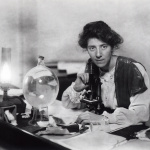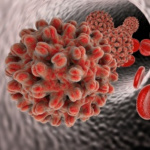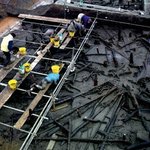During the worldwide COVID-19 pandemic, as lockdowns were put in place by government, there was concern about the experts demanding the decisions. They were overwhelmingly not biologists and immunologists and doctors but were instead epidemiologists using numerical models and making projections with data in rapid flux.
And, claims former Chancellor of the Exchequer Rishi Sunak, dissent was banned. Few wanted to hear discussion about the mental health aspects of extended isolation on children, or missed doctor’s appointments and NHS waiting list backlogs so extensive that now patients take…
Culture
Marie Stopes opened Britain’s first clinic offering birth control advice to married women. Born in Edinburgh in 1880, Stopes was an author, women’s rights campaigner and trained paleobotanist. She railed against the Catholic church and the male-dominated medical establishment. And her work – including her 1918 book Married Love – was pioneering.
She was also a fierce advocate for eugenics. This is the practice or advocacy of controlled selective breeding to improve the “quality” of a population’s genetic composition. She called for the “hopelessly rotten and racially diseased” to be…
Data for the continuum of care for the numbers of Hepatitis B and C diagnoses and those in treatment and care are lacking in most countries but what data are in show one thing clearly; 80 percent of people living with hepatitis B and C infections appear to be undiagnosed and that many of those who have been diagnosed with hepatitis B and C infection are not receiving life-saving treatment. Available evidence also indicates that those at high risk of infection, including people who inject drugs and people in prison, are not being effectively targeted for testing.
Thanks to recent advances,…
A new study seeks to understand why Russian women only make up 26 percent of students in Engineering, Technology and Technical Sciences undergraduate courses, 27 percent in Computer and Information Sciences courses, 31 percent of Mathematics and Mechanics, and 32 percent in Physics and Astronomy.
Gender representation is different in Europe as well, but it goes both ways. The social sciences and education fields are dominated by women and men have around the representation women have in engineering above. In Russia, a new paper notes, the reason may be more stereotypes, some worry; women are…
Some around the world predict that the COVID-19 will heal divisions and narrow inequalities. A pandemic, they claim, can remind us of our common humanity and the need to discard prejudices. It can also highlight inequalities and injustices and prompt people in power to deal with them.
In Europe, some predict it will highlight the plight of people in the ‘gig economy’ who do not enjoy a guaranteed wage. In the US, there are hopes that it may make it easier for people who cannot get to polling booths to vote.
In South Africa, some hope it will prompt action against the conditions which make it…
One of the more startling discoveries arising from genomic sequencing of ancient hominin DNA is the realisation that all humans outside Africa have traces of DNA in their genomes that do not belong to our own species.
The approximately six billion people on Earth whose recent ancestry is not from Africa will have inherited between 1% and 2% of their genome from our closest but now extinct relatives: the Neanderthals. East Asians and Oceanians have also inherited a small amount of ancestry from the Denisovans, another close relative of Homo Sapiens.
Now a new study, published in Science…
The "Grow scientific progress" movement is being given a chance in Europe. The European Commission is allowing a new citizen initiative calling for revisions to deregulate gene-editing techniques. The petition would need to receive over 1 million statements of support from residents of seven member states in order to trigger European Commission analysis and response.
The organisers of the initiative state that Directive 2001/18/EC on Genetically Modified Organisms (GMOs) is ‘outdated' and ask for a revision of its rules concerning new plant breeding techniques (NPBT), with the objective of…
Researchers from the Department of Prehistory and Archaeology at the University of Seville have studied the archaeological evidence of prehistoric societies in the Neolithic Period in the Iberian Peninsula from the perspective of gender and show in a new paper that gender differences first appeared which meant male domination in later periods of history.
They analysed two groups of indicators: life conditions and demographic aspects; and funerary practices. In the first group, they studied factors like the sexual ratio (proportion of men to women), diet, genetic data, movement, the most…
An extraordinarily well-preserved Late Bronze Age settlement in Cambridgeshire, in the East of England, has been called 'Britain's Pompeii' or the 'Pompeii of the Fens' but is more accurately the Must Farm quarry.
Thanks to corporate funding from Forterra Building Products Ltd, the quarry got a major excavation and there is now a definitive timeframe to Must Farm's occupation and destruction.
It lasted just one year before being consumed in a catastrophic fire.
Must Farm is located within the silts of a slow-flowing freshwater river, with stilted structures built to elevate the living…






